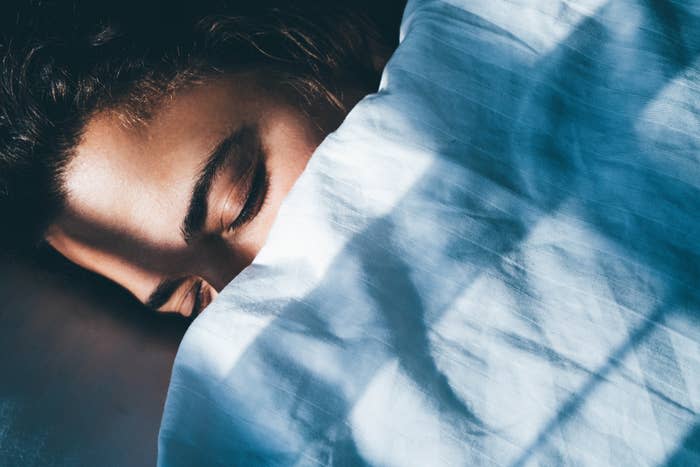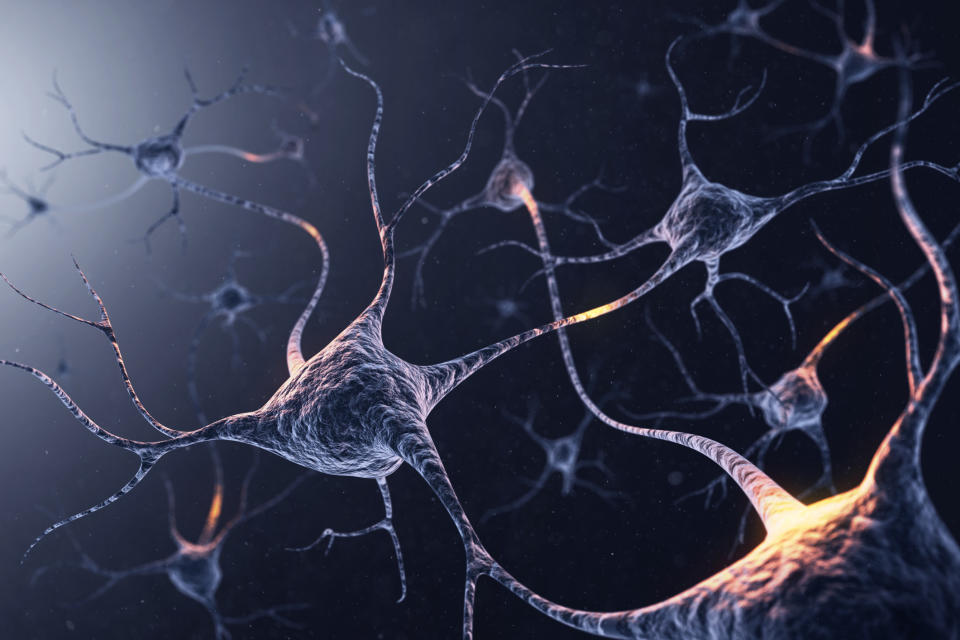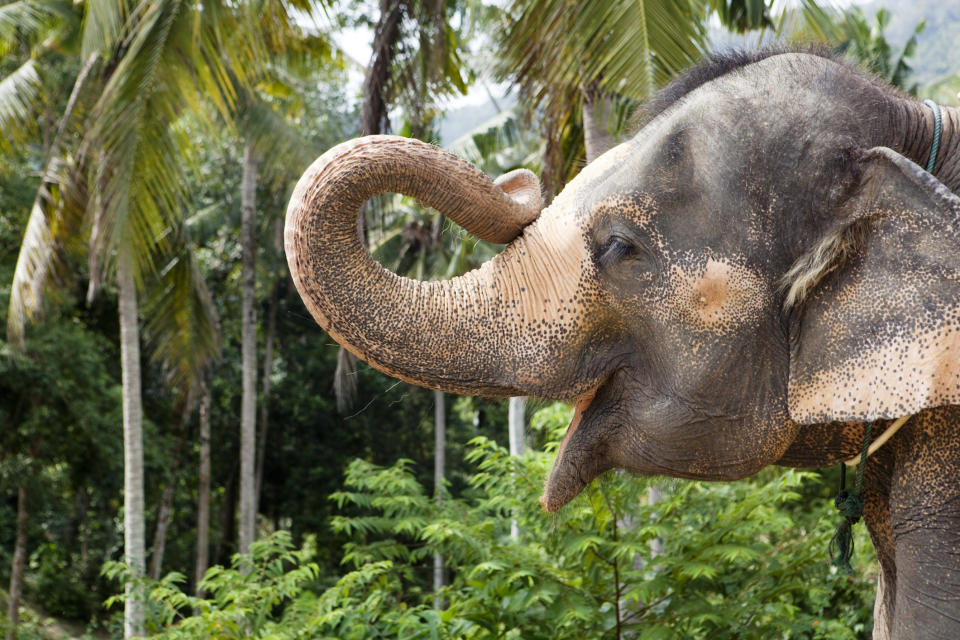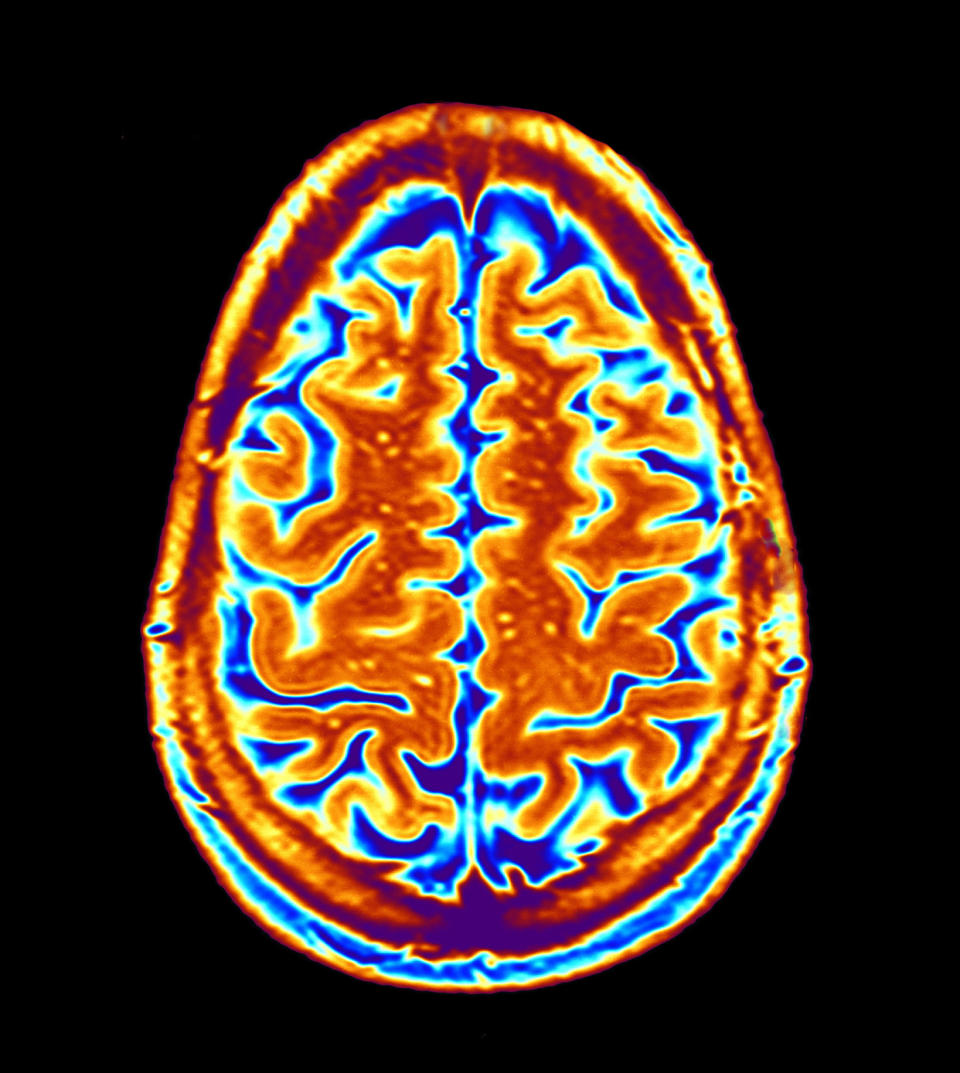14 Facts About The Brain That Make Me Feel Highly Evolved
1.Human brains remain half-awake when sleeping somewhere else for the first time. How does it do that? One hemisphere remains more awake than the other. In a study from Brown University, they found the side awake in participants was more often than not the left hemisphere of the brain.

2.There is a psychological effect called "helper's high," where helping people releases the same chemicals in your brain that pleasure or rewards do. According to EXPLORE: The Journal of Science & Healing, "Greater health and increased longevity are associated with this psychological state."

NBC
3."Poo-phoria" refers to when a larger bowel movement stimulates the vagus nerve, which travels from the brain to the end of the spinal cord, and creates feelings of lightheadedness, chills, and relaxation. Don't try and stimulate the vagus nerve yourself on purpose, though. Overstimulation can cause a significant drop in blood pressure and cause you to pass out.

4.The scientific reason some people pace while on the phone is because the brain lacks the visual stimulation that would typically occur in a face-to-face conversation.

Interscope
5.When we go to sleep, we get "brain washed" literally. Spinal fluid rinses over the brain to remove waste.
6.When dogs and humans look at each other, the brain releases oxytocin, the same bonding hormone mothers and babies release when they look at each other.

7.Humans have no sense of wetness. Wetness is something our brain concludes based on other factors like "our ability to sense cold temperature and tactile sensations such as pressure and texture." Our skin has no receptors for it.

MGM
8.Neurons in the brain can travel up to 270 miles per hour, but vary based on what kind of signal its sending. For example, touch receptors send a signal at around 150 miles an hour, and pain receptors send signals at around two miles an hour.

9.We have over 6,000 thoughts per day.

10.If you're someone who worries too much about what other people think about them, don't. Research shows people typically focus on themselves and tend to over-exaggerate what their social blunders look like in the eyes of others.

NBC
11.The human brain has 86 billion neurons, which may sound impressive, but will make you feel immediately inadequate when I tell you elephant brains have 257 billion neurons and a brain three times larger.

12.When two musicians play together, their brain waves synchronize.

13.Our brains use the same pathways to process both physical and emotional pain. Actually, a study had people take acetaminophen or a placebo and then experience a social rejection. The acetaminophen takers later reported fewer hurt feelings. That's not to say that you should take Tylenol whenever you're sad, but it emphasizes the fact that we have one pathway to feel pain.

14.Finally, this one isn't about the human brain, but it's too interesting not to share: Pufferfish release poison as a defense mechanism, but the poison has the same effect on dolphin brains as marijuana has on human brains, so dolphins purposely harass pufferfish to get them to release the chemical.

Jan. 09, 2023, at 19:10 PM
